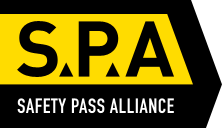BP Hydrogen project
• Together with BP’s already-proposed ‘blue’ hydrogen project (H2Teesside), HyGreen Teesside strengthens Teesside as the UK’s leading hydrogen hub to decarbonize industry and heavy transport.
• HyGreen Teesside and H2Teesside together have the potential to deliver 30% of the UK’s 2030 target for hydrogen production.

BP Hygreen Teeside
BP today confirmed it is planning a new large-scale green hydrogen production facility in the North East of England that could deliver up to 500Mwe (megawatt electrical input) of hydrogen production by 2030.
HyGreen Teesside will be developed in multiple stages, and is expected to match production to demand and build on experience to drive down costs. The company is aiming to start production by 2025, with an initial phase of some 60MWe of installed hydrogen production capacity. A final investment decision on the project is expected in 2023.
Hygreen Teesside is the latest addition to BP’s integrated UK business portfolio, which includes delivering 16,000 UK charging points by 2030, 3GW gross of offshore wind in the Irish Sea, and BP and Aberdeen city’s partnership deal.
BP is working with industry, local administration such as Tees Valley Combined Authority (’TVCA’) and the UK government to increase the pace of decarbonisation in transport. Its blue and green hydrogen projects in Teesside, together with the proposed Net Zero Teesside power project, is expected to further support economic development and regeneration in Teesside.
By creating ’high-quality’ jobs in both construction and operation phases, BP says the projects will support local education and skills development to create a highly skilled UK-based hydrogen supply chain.
Louise Jacobsen Plutt, BP’s senior vice president for hydrogen and carbon capture, utilisation and storage (CCUS), said: “Low-carbon hydrogen will be essential in decarbonising hard-to-abate industrial sectors including heavy transport. Together, HyGreen and H2Teesside can help transform Teesside into the UK’s green hear. BP plans major green hydrogen project in Teesside, strengthening its people, communities and businesses. This is exactly the type of energy we want to create and more importantly deliver.”
HyGreen Teesside is expected to fuel the development of Teesside into the UK’s first major hydrogen transport hub, leading the way for large-scale decarbonisation of heavy transport, airports, ports and rail in the UK.
Transport Secretary Grant Shapps, said: “This exciting project builds on our ongoing development of hydrogen in the area through the Tees Valley Hydrogen Transport Hub. It’ll help pave the way for its use across all transport modes, creating high-quality, green jobs in the process.
“This is excellent news following the recent COP26 summit and I look forward to supporting industry to develop new technologies as we build a cleaner transport system and work towards a net-zero future.”
BP says the combined 1.5GW capacity of HyGreen Teesside and H2Teesside could deliver 30% of the UK government’s target of developing 5GW of hydrogen production by 2030. Industries in Teesside account for over 5% of the UK’s industrial emissions and the region is home to five of the country’s top 25 emitters.
Tees Valley Mayor Ben Houchen, said: “This is yet another coup for the region as we lead the UK in creating the cleaner, safer and healthier jobs and communities of the future. We’re quickly becoming the go-to place for innovation in the hydrogen sector, thanks to our status as the UK’s first Hydrogen Transport Hub and BP’s commitment with other schemes, such as Net Zero Teesside and H2Teesside.
”Whether it’s hydrogen, carbon capture, utilization and storage or offshore wind, Teesside, Darlington and Hartlepool has the know-how, sites and ambition to deliver.”
BP has already announced a series of Memoranda of Understanding (MoU) with potential industrial customers for hydrogen in the Teesside area, including both existing and planned operations, as it grows demand for the hydrogen expected to be produced by H2Teesside.
BP has also recently signed an MoU with Daimler Truck to pilot both the development of hydrogen infrastructure and the introduction of hydrogen-powered fuel-cell trucks in the UK. It says HyGreen Teesside would be a further important step in the development its hydrogen business and its first green hydrogen project in the UK.
BP is pursuing proposed projects for green hydrogen production at its refineries in Rotterdam in the Netherlands, Lingen in Germany and Castellon in Spain. It has also carried out a feasibility study identifying opportunities for green hydrogen production in Western Australia and was most recently chosen as the preferred bidder to develop a green hydrogen production hub in Aberdeen.
Article Forecourt Trader






















